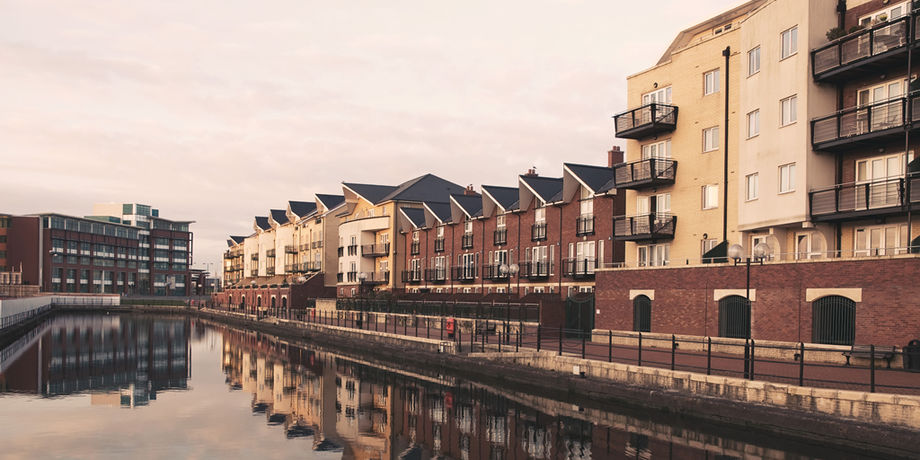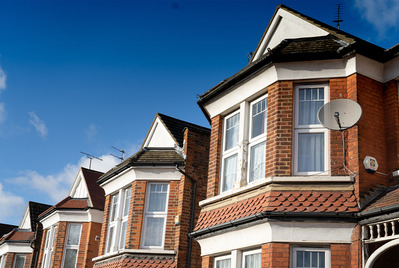
This is one of the most common questions we get from investors and the answer is: it depends where you want to buy! It depends on your budget, what stock’s available, the rental demand in the area and your overall investment plans.
So the best thing to do is speak to a local expert, like us. We’ll be able to tell you which type of property is most likely to suit your goals and advise you on what things you need to consider when you’re looking for your next investment.
Although every situation is likely to be slightly different, there are some basic guidelines:
- Houses tend to grow better in capital value than flats but flats are often more readily available and in greater demand in cities.
- With houses, you’re responsible for all the maintenance and repairs of the property and grounds. With flats there is requirement to pay for maintenance communally. That means you share the cost of bigger works, but you do need to check whether there’s a ‘sinking fund’ in place to cover the cost of the next batch of work. If people haven’t been paying enough over recent years, or if some haven’t been paying at all, you could end up with a surprise quote and bill for thousands of pounds of work you didn’t know about!
- Flats may have restrictive covenants that dictate whether the property can be let, how it can be let and what residents can and can’t do. Assuming it’s not listed, you’re likely to be able to do pretty much anything you want with a house, but always check if you need planning or building control checks.
- With a house, there’s more likely to be the opportunity to add value through extension or conversion of a house. Improving a flat is usually limited to internal decorative/cosmetic changes, although sometimes you can create another bedroom or en-suite.
The biggest difference between the two, really, is the tenure. Houses are freehold, which means you own the land that the property stands on and so you’re pretty much completely in control with what happens to it. Flats, on the other hand, are leasehold and that means there are certain key things you’ve got to investigate before you decide whether to buy one:
- How many years are left on the lease? Mortgage companies are less likely to lend when a lease length drops to below 80 years. That’s because the uncertain future can reduce the value of the flat dramatically as only cash buyers can typically bid for the property.
- Are there any restrictive covenants? For example, you may not actually be able to let at all, or only be able to let the property to one tenant and sub-letting might not be allowed. There may also be restrictions on parking, use of the communal grounds and the type of renovation you can carry out.
- How much is the service charge, what does it cover and is the ground rent included? Are there limits to annual increases?
- Is there a current sinking fund and when were major works (such as roof repairs, water tanks and painting of the exterior) carried out? You don’t want to get saddled with a huge bill as soon as you complete or buy without knowing what works will be required during your investment period.
- How many of the other flats in the building are let? If the answer is ‘none’, you could get complaints from other residents who might not appreciate non-owner occupiers.
If you do decide to buy a flat, it’s important to make sure the solicitor or licensed conveyancer you use is experienced in dealing with leasehold properties, and bear in mind their fees are usually higher than for handling freehold transactions due to the additional legal paperwork involved.
If you’ve got any queries or concerns about buying a flat, come and speak to us in your local Your Move branch any time. We’re always happy to help and our team will be able to talk through with you the pros and cons of investing locally in both flats and houses.
Sign up to our monthly landlord newsletter here >
YOUR PROPERTY MAY BE REPOSSESSED IF YOU DO NOT KEEP UP REPAYMENTS ON YOUR MORTGAGE.
Our initial mortgage consultation is free. We will charge a fee between £399 and £999 on application. The amount we will charge is dependent on the amount of research and administration required. We reserve the right to charge a subsequent fee of £99 for each further application that may be required.
The Financial Conduct Authority does not regulate some forms of Buy to Let.
The Your Move Content Marketing Team



